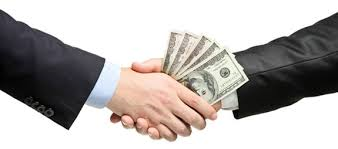
"I'm selling my business - how do I calculate my sales price? How do I work out what my business is worth?"
You will need more than an arbitrary number that is based on what you think your business is worth or should be worth. There are many factors to consider in the pricing process and any potential broker, bank or buyer will want to see a competitive price that is well justified based on current value, assets, goodwill and future potential.
Working out how much you will sell your business for
There are two parts to communicating what your business is worth – the actual figure and the story behind the price:
1. Dollar amount – the dollar amount needs to be competitive and demonstrate value. It is calculated on cash flow, profitability and asset values. Plus business relationships, goodwill and brand strength
2. Your story – your story needs to substantiate how you arrived at your price, how it balances risk, the potential earnings and opportunities of your business
Or take a few minutes to conduct our quick checklist to see how ready you are to sell your business.
Pricing tools
Your potential buyer will undertake their own research to determine what they think is a good and justified price. To reach their own figure they will use one or more of the following pricing tools:
- Asset valuation – add up the assets of a business, subtract the liabilities and you have an asset valuation. The starting point for an asset valuation is the assets listed in your accounts so these will need to be up to date
- Price earnings ratio – the value of the business divided by its profits after tax. The buyer will have to justify why they have used a particular ratio and you can check the legitimacy of this with a good accountant. Please note that this method is most often used for listed entities and large companies
- Entry cost valuation – reflects what it would cost to start the business from scratch. The price would include the cost of purchasing or financing the assets, developing the products or services, recruiting and training staff and building up a customer base
- Industry rule of thumb – some industries have a standard pricing method that is readily accepted in the market
- Capitalisation method – based on the rate of return in earnings that the investor expects.The multiple is usually based on earnings before interest and tax (EBIT). The multiple will vary depending on many risk factors such as industry and size of business
Want more information?
Download "Building a Saleable Business – a FREE Guide for SMEs" by clicking the link below (instant PDF):

%20-%20HubSpot%20(1).png)
